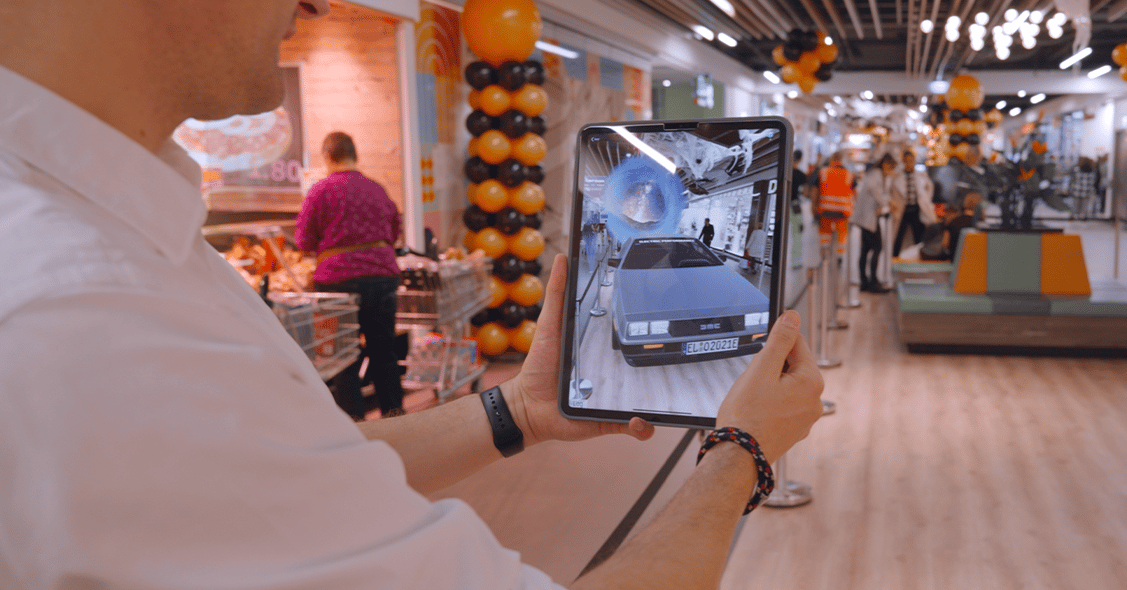Within the celebration of a Halloween event last weekend Greenman OPEN (OPEN) demonstrated, together with the metaverse infrastructure provider Mapstar AG from Karlsruhe, how digitalisation revolutionises the retail landscape. Greenman OPEN, one of the largest investment funds focused on food retail in Germany, wanted to explore how the consumer’s physical shopping experience can be enhanced through technology and digitalisation. OPEN believes that the development of retail will be technology driven and that their properties need to be well positioned and equipped in order to remain competitive in the future. With this successful debut Biesdorf Center, recently rated as the best performing shopping centre in Berlin, is taking the first step towards digitalisation.
In this context Greenman and Mapstar are cooperating to bring the Biesdorf Center into the future with an extended reality shopping experience. With the pilot project, the companies want to implement the innovative technology and show how the shopping experience for both visitors and retailers can be amplified: Mapstar offers a generalised metaverse infrastructure for everyone, that is easily accessible. Through using this technology in a retail setting, users can make better purchasing decisions by accessing information about the product, such as its nutritional value or supply chain, virtually through their smartphone.
Johnnie Wilkinson, CEO of Greenman, says: “The topic about ecological transparency and sustainable production of consumer goods is increasingly becoming the focus in our society. Consumers are concerned about the way we use our resources, the people involved in production, transport distances, and energy that was necessary to produce the finished product. Meeting this environmental requirement means, not least of all, a rethinking for many manufacturing companies and their customers. From an availability-driven consumer behaviour to a demand-oriented production industry – how to balance demand vs sustainability? We believe that the use of key technologies plays a crucial role in answering this question, and the fusion of the digital and physical world has the potential to provide us with the necessary tools to do so. In our vision, VR allows nothing less than significantly improved shopping and production decisions for both users and retailers.”
Shora Shirzad, co-founder of Mapstar AG, adds: “We are convinced that the internet of the future will be displayed in three-dimensional space and the boundaries of virtuality and reality will merge. Our goal is a metaverse infrastructure that can be used everywhere, accessible via all end devices. In our trial with Greenman we wanted to show that this is not only possible, but also very simple. Imagine you would not have to search for a specific item in the store anymore because instead you can easily ask a virtual assistant on your smartphone. If required you can access additional information about the product, its origin or the supply chain visualised through augmented reality. And that is just the beginning, because there are hardly any limits to the possibilities of a virtually assisted reality.”
The VR event took place on Friday 28th of October at Biesdorf Center in Berlin and attracted hundreds of visitors who came to try and experience the technology. This reaffirms Greenman’s opinion that the future of retail is tech driven and that virtual wayfinding, information layered via extended reality, and also a fun consumer experience consistently influences the shopping experience in a positive way.
